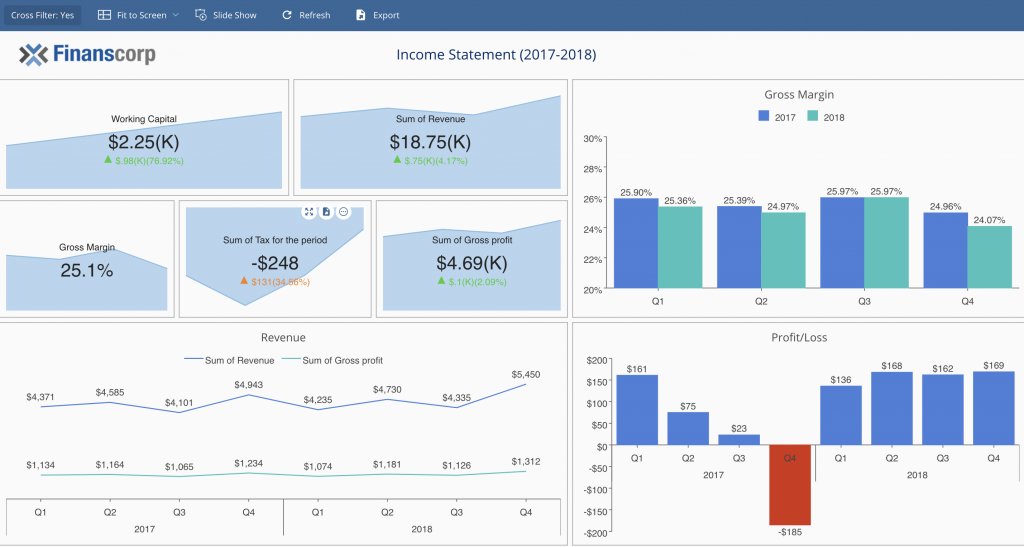Reasons for Missing Work Due to Car Accident
Okay, so you’ve been in a car accident. Now what? Well, if you’re like most people, you’re probably wondering how you’re going to manage to miss work. After all, you have bills to pay. A mortgage to keep up with. Kids to feed.
The good news is, there are a few things you can do to make missing work due to a car accident a little bit easier. First, you should contact your employer as soon as possible. Let them know what happened and how long you expect to be out of work.
Next, you should start gathering documentation. This includes getting a copy of the police report, as well as any medical records that you have. These documents will help you prove that you were injured in the accident and that you’re unable to work.
Finally, you should file a claim with your insurance company. This will help you cover the costs of your medical bills and lost wages. Missing work due to a car accident can be a major hassle, but it doesn’t have to be a disaster. By following these tips, you can make the process a little bit easier. Moreover, you can get the compensation you deserve.
Injuries
Car accidents can lead to a wide range of injuries, from minor cuts and bruises to serious head and spinal cord injuries. These injuries can make it difficult or impossible to perform your job duties.
For example, if you have a broken leg, you may not be able to stand or walk for a period of time. This could make it difficult to work in a job that requires you to be on your feet all day.
If you have a head injury, you may experience symptoms such as dizziness, nausea, and confusion. These symptoms can make it difficult to concentrate and make decisions. This could make it difficult to work in a job that requires a lot of mental focus.
Emotional Distress
Car accidents can also cause emotional distress. This can include feelings of anxiety, depression, and post-traumatic stress disorder (PTSD). These feelings can make it difficult to focus on your job and perform your duties.
For example, if you’re experiencing anxiety, you may have difficulty concentrating and making decisions. This could make it difficult to work in a job that requires a lot of attention to detail.
If you’re experiencing depression, you may have difficulty getting out of bed in the morning and going to work. This could lead to absenteeism and performance problems.
Transportation Issues
If your car was damaged in the accident, you may not have a way to get to work. This could make it impossible to perform your job duties.
For example, if you live in a rural area, you may not have access to public transportation. This could make it difficult to get to work if your car is damaged.
If you live in a city, you may be able to take public transportation to work. However, this may take longer than driving and may be more expensive.
Missing Work Due to a Car Accident: A Guide to Preserving Your Employment and Health
Navigating the aftermath of a car accident is a stressful and challenging experience, especially when the accident results in injuries that prevent you from working. Understandably, the loss of income and potential benefits can be a significant concern. This comprehensive guide will provide you with a clear understanding of your rights, responsibilities, and options for preserving your employment and health during this difficult time.
Steps to Take After an Accident
-
Seek Medical Attention: Your health and well-being should be your top priority. Seek medical evaluation promptly, even if your injuries appear minor.
-
Exchange Information: Politely exchange information with other drivers involved in the accident, including names, addresses, phone numbers, insurance details, and vehicle information.
-
Contact Your Employer: Notify your employer about the accident and your expected return date. If possible, provide a doctor’s note to support your absence.
-
File a Police Report: Reporting the accident to the police creates an official record and can aid in insurance claims.
-
Contact Your Insurance Company: Inform your insurance company about the accident and begin the claims process.
-
Gather Evidence: Document the accident by taking photos, collecting witness statements, and keeping receipts for medical expenses.
Preserving Your Employment
-
Utilize Employee Benefits: Check your employee handbook for provisions such as paid sick leave or short-term disability insurance that may cover your absence.
-
Request Accommodations: If your injuries prevent you from performing your regular duties, inquire about reasonable accommodations, such as modified work schedules or assignments.
-
Consider Leave Options: Explore options like Family and Medical Leave Act (FMLA) leave or unpaid leave of absence if your recovery requires an extended period away from work.
-
Communicate with Your Employer: Keep your employer updated on your condition, expected return date, and any potential limitations.
-
Seek Legal Advice: If you have any concerns about job security or benefits, consult with an employment law attorney.
Prioritizing Health and Recovery
-
Follow Doctor’s Orders: Adhere strictly to your doctor’s recommendations for rest, medication, and therapy to ensure a smooth recovery.
-
Attend Appointments: Make and keep all medical appointments, including physical therapy, follow-ups, and any specialist consultations.
-
Consider Transportation Assistance: If you are unable to drive, explore transportation options like public transit, ride-sharing services, or asking for help from family and friends.
-
Seek Emotional Support: The emotional toll of an accident can be significant. Reach out to loved ones, support groups, or a therapist for emotional support during this challenging time.
-
Don’t Rush Your Recovery: Understand that recovery takes time. Avoid pushing yourself too hard and allow your body to heal at its own pace.
Missing Work Due to a Car Accident
If you’re unfortunate enough to be involved in a car accident, you may find yourself unable to work due to injuries or other complications. This can be a stressful situation, but knowing what steps to take can help you manage your responsibilities and get back on your feet as soon as possible.
Employer Notification
The first step is to notify your employer as soon as possible after the accident. Even if you’re not sure whether you’ll miss work, it’s important to give them a heads-up. This will give them time to make arrangements or find a replacement if necessary. When you call, be sure to provide as much information as you can, including the date and time of the accident, the location, the extent of your injuries, and your expected recovery time.
If you’re able to go to work, but your injuries are affecting your ability to perform your job, you may need to request a leave of absence. This will give you time to recover without worrying about losing your job. To request a leave of absence, you’ll need to provide your employer with a doctor’s note. The note should state the extent of your injuries and the amount of time you need off work.
If you’re unable to work due to your injuries, you may be eligible for workers’ compensation benefits. These benefits can help cover your medical expenses and lost wages. To file a claim for workers’ compensation, you’ll need to contact your employer’s insurance company. They will provide you with the necessary paperwork and instructions.
Missing Work Due to Car Accident
Car accidents can be a traumatic experience, leaving you with physical and emotional injuries. On top of that, you may also have to deal with the financial burden of missing work. If you’re in this situation, it’s important to know your rights and what steps you need to take to protect yourself.
First and foremost, you should always seek medical attention after a car accident, even if you don’t feel like you’re badly injured. Some injuries may not be immediately apparent, and it’s important to get checked out by a doctor to rule out any serious problems.
Documentation
Once you’ve been seen by a doctor, it’s important to start gathering documentation related to the accident. This includes medical records, police reports, and witness statements. This documentation will be helpful if you need to file a claim with your insurance company or if you decide to take legal action.
In addition to gathering documentation, you should also keep track of your expenses related to the accident. This includes medical bills, lost wages, and transportation costs. This information will be helpful if you need to file a claim for compensation.
If you’re unable to work due to your injuries, you may be eligible for workers’ compensation benefits. Workers’ compensation is a type of insurance that provides financial assistance to employees who are injured on the job. To be eligible for workers’ compensation benefits, you must be able to prove that your injuries were sustained while you were working and that they are preventing you from performing your job duties.
If you’re not eligible for workers’ compensation benefits, you may still be able to collect disability benefits. Disability benefits are a type of insurance that provides financial assistance to individuals who are unable to work due to a disability. To be eligible for disability benefits, you must be able to prove that you have a disability that is preventing you from working.
Missing work due to a car accident can be a stressful and overwhelming experience. However, by following these tips, you can help protect your rights and get the compensation you deserve.
Missing Work Due to a Car Accident: What You Need to Know
Getting into a car accident can be a traumatic experience, both physically and emotionally. If you’re injured, you may be facing medical bills and lost wages. Missing work can put a further strain on you and your family, but there are steps you can take to protect yourself financially.
Insurance
If you were injured in the accident, you may need to file an insurance claim to cover your medical expenses and lost wages. Your car insurance policy may provide coverage for lost wages, or you may be able to file a claim with the other driver’s insurance company. If you are not sure what coverage you have, contact your insurance company.
Employer Responsibilities
Your employer may have a policy regarding employees who miss work due to car accidents. Some employers offer paid time off for injuries sustained in car accidents, while others may require you to use your sick leave or vacation time. Be sure to check with your employer to see what their policy is.
Short-Term Disability Insurance
If you have short-term disability insurance, you may be able to receive benefits if you are unable to work due to a car accident. Short-term disability insurance typically provides coverage for a limited time, such as six months or a year. To apply for short-term disability benefits, you will need to provide your insurance company with a doctor’s note.
Long-Term Disability Insurance
If you are unable to work for a longer period of time due to a car accident, you may be eligible for long-term disability benefits. Long-term disability insurance typically provides coverage for a longer period of time than short-term disability insurance, such as two years or five years. To apply for long-term disability benefits, you will need to provide your insurance company with a doctor’s note and other documentation.
Legal Options
If you were injured in a car accident that was caused by someone else’s negligence, you may be entitled to compensation for your injuries and lost wages. You may want to consider speaking with an attorney to discuss your legal options.
Missing Work Due to a Car Accident: A Comprehensive Guide
Missing work due to a car accident can be a stressful and overwhelming experience. Between recovering from injuries, dealing with insurance companies, and navigating legal matters, it’s easy to feel like your life is on hold. This article will provide you with essential information to help you navigate this challenging time, including returning to work, managing your finances, and accessing legal support.
Returning to Work
Returning to work after a car accident can be daunting, especially if you have any ongoing limitations. It’s crucial to communicate with your employer openly and honestly about your situation. You may need to adjust your work schedule, make physical accommodations, or take a leave of absence. Remember, your employer is obligated to provide reasonable accommodations under the Americans with Disabilities Act (ADA).
Managing Your Finances
Missing work can significantly impact your finances. If you don’t have sick leave or other forms of paid time off, you may experience a loss of income. It’s important to explore your options for financial assistance, such as short-term disability insurance, workers’ compensation, or unemployment benefits. Additionally, you may consider reaching out to creditors to request a temporary deferment of payments.
Accessing Legal Support
If your car accident was caused by someone else’s negligence, you may be entitled to compensation for your injuries, lost wages, and other expenses. It’s important to contact an attorney experienced in personal injury law to discuss your rights and options. They can guide you through the legal process, negotiate with insurance companies, and represent your interests in court if necessary.
Insurance Coverage
After a car accident, it’s essential to file a claim with your insurance company. They will cover your medical expenses, property damage, and other losses related to the accident. You may also have to deal with the other driver’s insurance company, so it’s important to understand your rights and stay informed about the claims process.
Emotional and Physical Recovery
Recovering from a car accident can take time and effort. It’s important to prioritize your physical and emotional health. Attend all medical appointments, follow your doctor’s orders, and consider seeking support from a therapist or counselor if needed. Remember, healing is a journey, and there will be setbacks along the way.




Leave a Reply